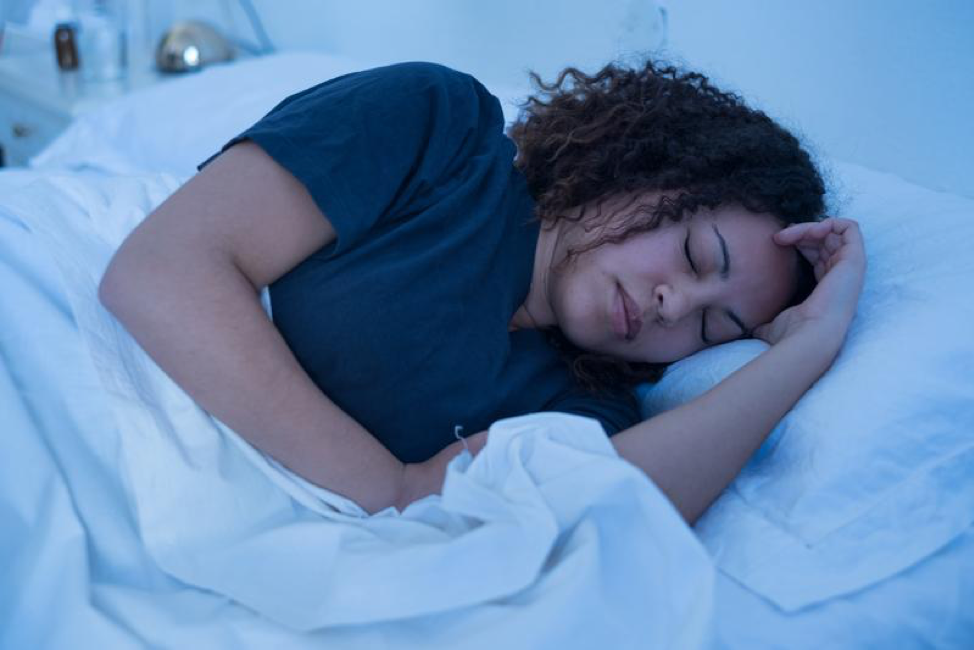
All-Natural Ways to Get a Better Night's Sleep
After death and taxes, sleep is probably the most certain aspect of the human condition. Healthy, proper sleep is restorative and generally quite pleasant — a luxury, even. Poor-quality or not getting enough rest can be described as a particular kind of slow torture. Lack of sleep has been linked to higher stress, vulnerability to illness, and decreased overall mental health.
As a mom, it's one our 5 desires and we definitely agree sleep is one of the top items for us too.
Many people have difficulty falling asleep or staying asleep. Insomnia leads to prescriptions for potent and risky medications such as Ambien. Even worse, some people attempt to self-medicate with alcohol or strong narcotics. Both treatments are unsustainable in the long term. Fortunately, there are some natural steps you can take to get a better night's sleep.
Watch what you eat

While you want to avoid eating right before bed, that doesn’t mean you can’t seek to improve your diet to better your chances of restful sleep. Try to avoid carbs, such as pasta, white bread, sugary or baked goods, and other heavy foods. Instead, try eating more fruits and nuts. If you have to have something before bed, try to look to teas and milk instead. For people who have an extra hard time with sleeping, looking to helpful oils such as CBD oil or other CBD products, just be sure to thoroughly check that these products are the right for you by talking to your physician.
Sometimes it's what you don't do

Our world is full of light. Televisions, lamps, computers, smartphones, and other devices put a great deal of light into our lives, and occupy a lot of our attention. A quick computer game before bed, one last email, a late-night rerun of our favorite TV series; there are many reasons a person might be exposed to light sources before bed.
However, the human body is adapted to rhythms of regular periods of light and dark. Light is for when we're awake, in most cases, and our body keeps itself running when light is available. Studies have shown that exposure to light sources within an hour of bedtime is strongly linked with less overall sleep. So, try turning off the devices a full hour before bed, and limiting the number of light sources during this period.
Make bedtime a process rather than an event

It's true that we live in very demanding times, with stimuli calling for our attention almost nonstop. As a result, many of us are working, playing, or engaging in mentally demanding activities right up to the last minute before crashing into bed. If you have trouble turning off your brain after you’ve hit the pillow, you may need more time to unwind. Make the process of going to bed an activity in itself. Slow down, setting aside the activities that have kept you going, and reflect on your day. Make a ritual out of preparing your bed for sleep, rather than crashing into bed straight from hard activity.
One popular method of winding down is taking a bath or shower and even brushing your teeth. With OraMD you can relieve any gum sensitivity to help you sleep at night. Body temperature plays an important role in regulating circadian rhythm, your body’s way to knowing when it’s time to wake up and when it’s time to go to sleep. During the day, your body temperature gradually rises until late afternoon, when it starts to gradually decrease. This cooling is the signal that it’s time to sleep. Showering or taking a warm bath about 1.5 hours before bed gives your body the chance to warm up and cool down enough to induce higher quality sleep. Using a body wash scented with lavender essential oils can enhance these effects.
Consider aromatherapy or audiotherapy
Burn a candle or evaporate a mild essential oil in a scent you associate with relaxation. Allow yourself to feel relaxing pleasure and comfort in the moment as you prepare for rest. Again, take time before bed to unwind, letting yourself get into that "sleepy" mindset. Listening to sleep music with brain waves can also be beneficial at this time.
https://www.youtube.com/watch?v=xQ6xgDI7Whc
Further, try to schedule your sleep at the same time each night if possible. By setting a schedule, you will train your body to understand and anticipate when it's time to sleep.
Get comfortable
Sometimes it's the position that we fall asleep in that affects how we feel when we wake up in the morning. Whether it's a stiff neck, sore back, or tight jaw, your body is trying to tell you that your sleeping arrangements need to change. If you have a stiff neck, try getting a new pillow. If your back is always sore in the morning, look at your mattress — is it starting to sag in the middle? You may need a new or higher-quality one. If your jaw is sore, you may unconsciously grind your teeth at night. Try wearing a night guard.
Comfort is about more than soft pillows and fluffy blankets. When you're truly comfortable, you will sleep better.
When all else fails…
Whether as part of a ritual or actually for their somnific properties, sometimes an oral treatment is the only thing that will do the trick. Some restless sleepers find that they sleep more soundly if they’ve had a cup of tea before bed; Celestial Seasonings Sleepytime (Amazon) is the most popular. Natural supplements like Serenity (Amazon) are also helpful for inducing sleep without the negative effects associated with mainstream sleep aids.



Comments
Donna Maria
Love this post! I have never been one to have trouble getting to sleep, and I count myself very fortunate. But, I do have love the audio therapy idea. I use the Calm app, and they have sleep stories. So far, I have never been able to listen to a sleep story the whole way through, because I always fall asleep at the beginning. LOL! I do need to set a schedule though, because just because I fall asleep fast does not mean I actually am getting enough sleep. Working on that! Thanks for this post!
March 03, 2019
Leave a comment